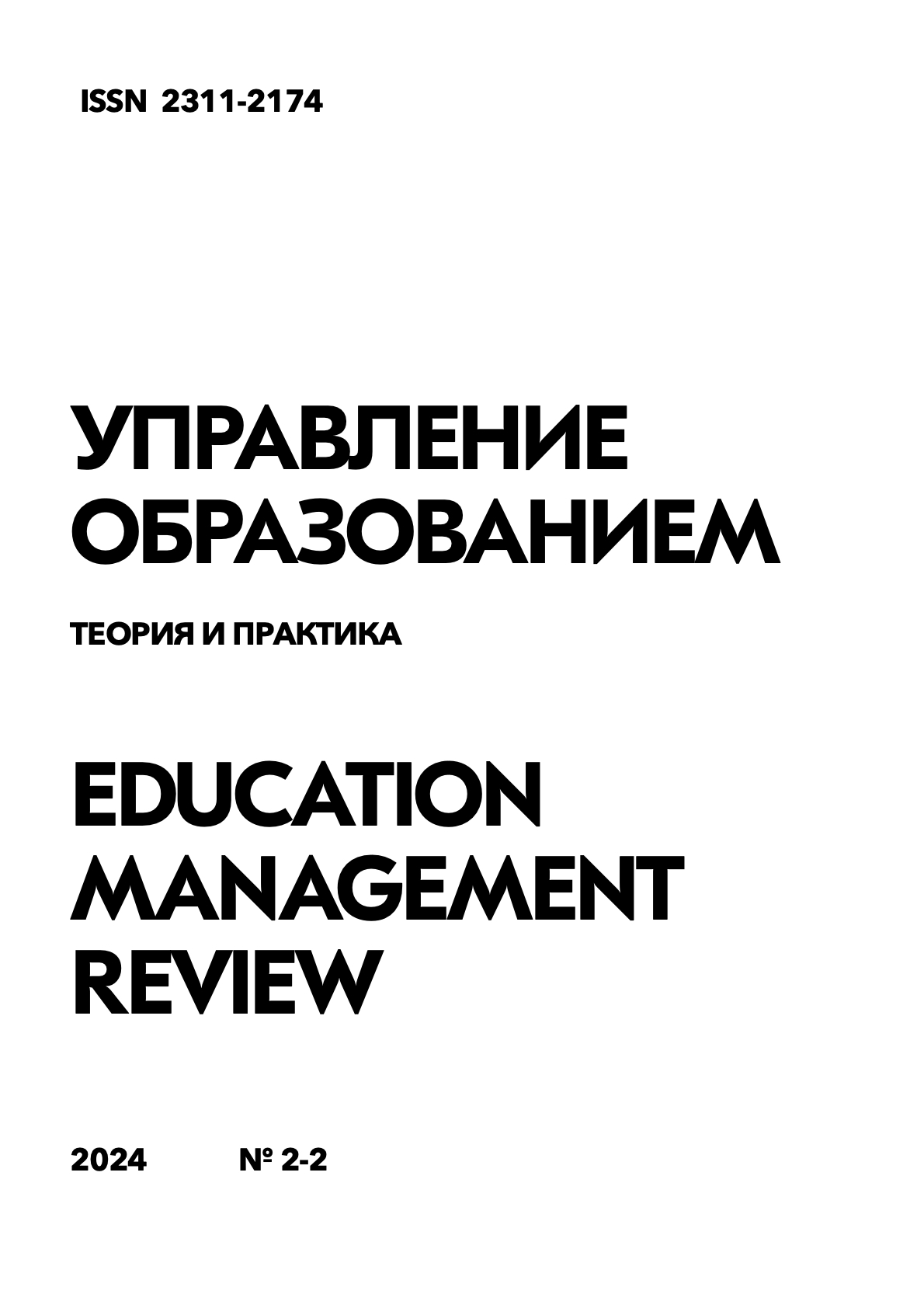Strategies for adapting students in oil and gas universities to the rapidly changing conditions of the industry
DOI:
https://doi.org/10.25726/q2273-4376-0308-lKeywords:
oil and gas sector, adaptation, adaptation strategies, students, professional competencies, innovative projects, networking, motivation, digitalizationAbstract
This article discusses strategies for adapting students in oil and gas universities in Russia to the rapidly changing conditions of the industry. The relevance of the research is due to the need to train highly qualified specialists who are able to work effectively in the dynamic environment of the oil and gas sector. The purpose of the work is to identify and analyze key strategies for students' adaptation to changes in the industry. The research is based on an integrated approach, including theoretical analysis of scientific literature, empirical methods (questionnaires, interviews), as well as statistical data processing. The sample consisted of 450 students from 5 leading oil and gas universities in Russia. To assess adaptation strategies, the methods of diagnostics of adaptability by A.G. Maklakov and S.V. Chermyanin, the questionnaire «Strategies for overcoming stressful situations» by S. Hobfall were used. The results of the study showed that the most effective strategies for student adaptation are: proactive learning (79%), development of professional competencies (74%), networking (69%), participation in innovative projects (62%). A positive correlation was found between the level of adaptability and academic performance (r=0.68; p<0.01). The factors contributing to successful adaptation were identified: motivation to study (84%), support from teachers (78%), involvement in research activities (71%). The practical significance of the work consists in the development of recommendations for oil and gas universities on improving the educational process, taking into account the identified adaptation strategies. The implementation of the proposed measures will improve the quality of training of specialists who are ready to work effectively in the conditions of industry transformation. Further research may be aimed at studying the impact of digitalization and the introduction of innovative technologies on the adaptation of students of oil and gas specialties.
References
Загитова Л.Р., Щербаков В.С. Формирование математической компетенции будущих инженеров-нефтяников // Казанский педагогический журнал. 2013. № 1. С. 74-81.
Кубекова AM Практико-ориентированное обучение – залог успешного обучения // Педагогическая наука и практика. 2018. № 1(19). С. 49-51.
Ладенко A.A. Нефтегазопромысловое оборудование: уч. пос. Вологда: Инфра-Инженерия, 2022. 236 с.
Легкова И.А., Никитина С.А. Влияние использования информационных технологий на графическую подготовку обучающихся // Фундаментальные и прикладные исследования в современном мире: мат. XI Междунар. науч.-прак. конф. СПб: 2015. №12-3. С. 109-112.
Морозова И.Л. Практико-ориентированное обучение – залог формирования языковой и коммуникативной компетенции у специалистов со средним профессиональным образованием // Государственные образовательные стандарты ОТО нового поколения проблемы и решения: мат. межрег., межотр. науч.-прак. конфер, посвященной 60-летию Тюменской области. Тюмень: Федеральное агентство по образованию, 2004.
Об утверждении Единого тарифно-квалификационного справочника работ и профессий рабочих, выпуск в, разделы: «Бурение скважин», «Добыча нефти и газа». Постановление Минтруда РФ от 14.11.2000 № 81.
Об утверждении профессионального стандарта «Оператор по добыче нефти, газа и газового конденсата». Приказ Минтруда России от 18.11.2014 № 898н (зарегистрирован в Минюсте России 17.12.2014 N 35214).
Овтов В.А. Использование САПР как инструмента при формировании инженерно-графических компетенций студентов технических специальностей // МНКО. - 2019. - № 5 (78). - С. 30-32.
Сайгушев Н.Я., Веденеева ОА, Щербакова И.А. Педагогическое сопровождение как средство эффективной подготовки студентов // Мир науки. Педагогика и психология. 2018. № 6.
Санду С.Ф. Оператор по исследованию скважин: учебное пособие. Томск: ТПУ, 2015. 120 с.
Филимонова М.Ю. Проектирование системы обучения инженерной графике с использованием новых информационных технологий (на примере подготовки инженеров-нефтяников.: дисс. ... к. пед. н., 13.00.08. Казань, 2003. 177 с.
Хамматдинова ГИ. Нефтяная промышленность РФ: особенности развития и основные проблемы // Вестник УГНТУ. Наука, образование, экономика. Серия: Экономика. 2018. № 3(25).
Хлебникова Н.В. Профессиональная адаптация студента к будущей профессии: процесс и результат // Казанская наука. 2015. № 8.
Хмарова Л.И., Усманова Е.А. Применение компьютерных технологий при изучении графических дисциплин // Вестник ЮУрГУ. Серия: Образование. Педагогические науки. 2014. № 2. С. 59- 64.
Ялалов Ф. Деятельностно-компетентностный подход к практикоориентированному образованию // Высшее образование в России. 2008. № 1. C. 89-93.




